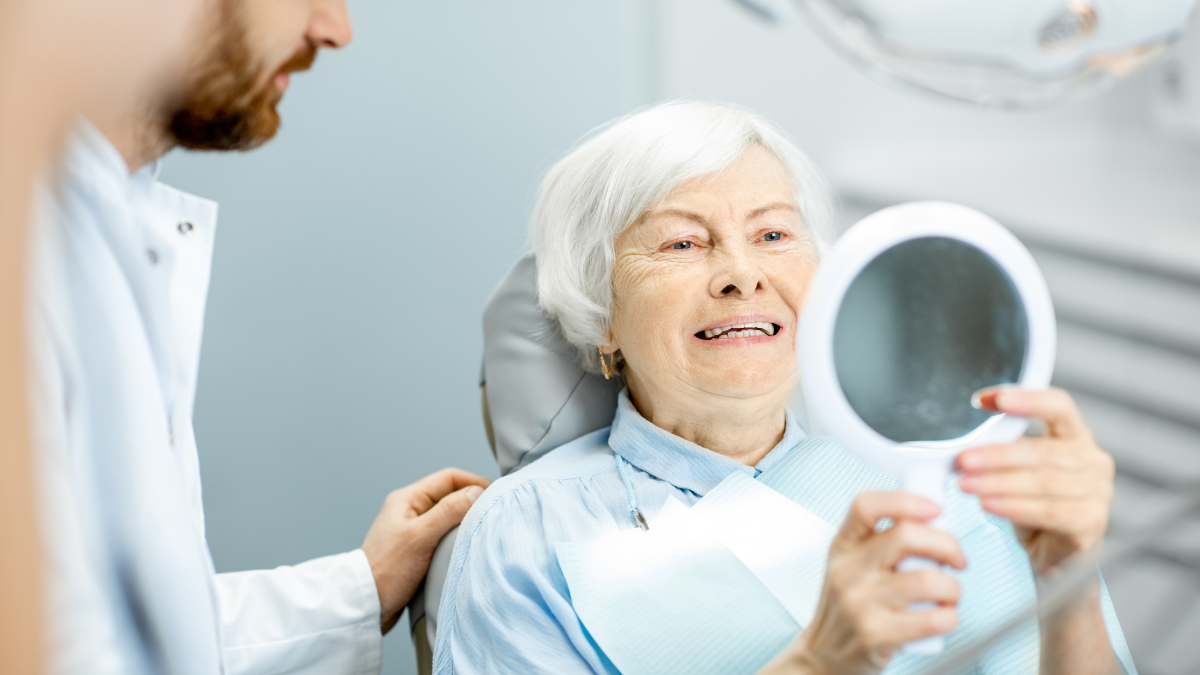
| 4 February 2020
For people who are unable to clean their own teeth, mouth care should be an essential nursing responsibility but it can, sadly, be treated like an optional extra and is an issue that often slips under the radar. It can often seem like a small issue, but in fact poor oral health can have much wider implications. Having a painful oral health problem can impact on someone’s ability to eat comfortably, to speak and to socialise with confidence, and on the ease with which they can take medication, something which may be a particular issue if an older person is living with other long-term health conditions.
Maintaining good oral health can also become much more challenging for older people with reduced dexterity, who may for example have more difficulty with brushing their teeth. Furthermore, for the most vulnerable older people, such as those with dementia, who may have difficulty communicating where they are experiencing pain, an oral health problem can be especially distressing.
Oral healthcare findings in care homes
CQC published a report ‘Smiling Matters’ in June 2019 which details an in-depth review on the state of oral health care in care homes across England. The report reveals a lack of awareness of NICE guidelines and concludes that residents are not supported to maintain and improve their oral health.
Areas that are highlighted that needs to be addressed include a lack of training, mouth care assessment tools, policies and equipment, as summarised in the Smiling Matter report.
When a resident is admitted into a care home, their oral health needs should be considered as part of their initial health assessment. Those needs should then be reflected in an oral care plan that all their carers are aware of and that will, for example, set out whether the resident needs extra help brushing their teeth.
Key findings
- The majority (52%) of care homes visited had no policy to promote and protect people’s oral health
- Nearly half (47%) of care homes were not providing any staff training to support people’s daily oral healthcare
- 73% of residents’ care plans we reviewed only partly covered or did not cover oral health at all – homes looking after people with dementia being the most likely to have no plan in place.
- 17% of care homes said they did not assess people’s oral health on admission
Oral Care Training added to the ‘effective’ KLOE
The Care Quality Commission warned that care staff need mandatory training to protect people’s oral health, after its series of inspections found a proportion of services with no policies or training in place to support this type of care.
Knowing how to provide good oral care is especially important when it comes to supporting those with more complex needs. Broadly, if someone who is living with dementia refuses oral care, this can become an obstacle to maintaining good oral health, so it is important that carers understand how to manage these situations, ideally with input from a dental care professional.
Since October 2019, new questions to improve oral care in care homes have been added to the Care Quality Commission’s ‘effective’ key line of inspection inquiry.
The new questions are:
1. Do all staff have training in oral health care?
- Is oral health covered in induction?
- Is oral health a mandatory component of regular training?
- Do staff feel confident in supporting oral health care?
- Do staff know what to look for to identify deterioration in oral health?
- Do staff consider poor oral health when assessing reasons behind weight loss, infection, or tissue viability?
2. How do you ensure oral health care is assessed, considered and delivered as a part of a person’s care plan?
- Is the service aware of the NICE Guideline NG48?
- Is oral health assessed fully on entry to the care home in line with this guideline?
- Is there a detailed oral health care plan in place?
- Do people have easy access to toothpaste, toothbrushes, denture cleaning fluid?
- Do people have access to routine and emergency dental care?
Dentist leaders have welcomed the new questions to improve standards but the concern now is ensuring that support from the dental profession and resources are in place to help homes provide dental care to their residents.
An Oral Health eLearning course has been developed by Skills for Health, for all staff working with patients and residents. The course highlights the importance of oral health including how plaque causes dental disease, why teeth should be brushed, how to care for dentures and the link between oral health and general health.
Expert Guest Blog Post by Jane Peterson RHD BSc, Co Founder of Knowledge Oral Healthcare

eLearning for healthcare
Unlock your potential – our healthcare eLearning courses make it simple to access high quality content, that deliver on your statutory and mandatory training and compliance needs.
